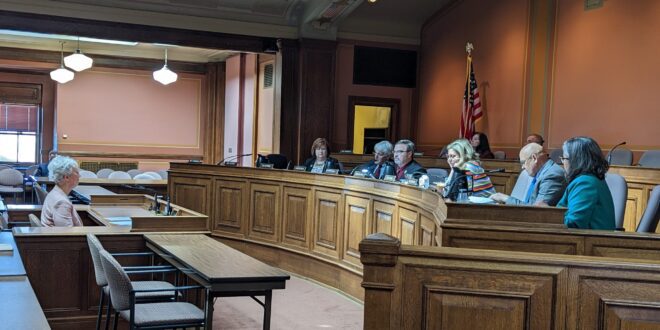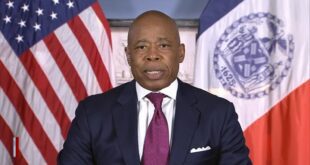Testimonies highlight need for Wisconsin to address mental health issues
State agency representatives and mental health advocates testified Tuesday about how Wisconsin could improve when it comes to addressing mental health issues, asking lawmakers to consider supporting different policies and additional investments, including certain items proposed by Gov. Tony Evers for the upcoming biennial budget.
Turning mental health into a “casserole illness”
Rep. Paul Tittl (R-Manitowoc), chair of the Assembly Mental Health and Substance Abuse Prevention committee, said he wants to turn mental health into a “casserole illness”.
“I’ve had surgeries recently and people brought over casseroles, people brought over food. It doesn’t seem that we embrace people that are going through a mental health crisis,” Tittl said. “And I think we need to. We need to bring over that casserole.”
Shortages of mental health professionals and staff highlighted in detention facilities
Representatives for the Wisconsin Department of Corrections identified psychologist and correctional officer staffing shortages as one of the biggest problems when it comes to supporting mental health issues among Wisconsin’s prison populations.
Milwaukee Secure Detention Facility was fully staffed about a year and half ago, Kevin Kallas, director of psychiatry in the DOC’s division of adult institutions, told lawmakers. He said the departure of a supervisor, who left for a job with less responsibility that paid her $20,000 more per year, caused an exodus of staff from the detention facility in downtown Milwaukee.
Kallas said once a facility gets to a critical vacancy point — around half staffed— then “the remaining staff just tend to leave because their workload is so much more.” He said low state salaries, which aren’t competitive with salaries people could receive in the private sector, as well as the work environment are partly to blame for a staffing shortage in Wisconsin’s detention facilities.
Kallas and Anna Neal, DOC’s legislative advisor, told lawmakers that providing additional, competitive pay for mental health professionals and correctional officers could help address the shortages and as a result improve the mental health of DOC staff and inmates. Neal said she supports Evers’ proposed pay increases.
Evers’ budget proposal includes wage increases for correctional officers, sergeants, psychiatric care technicians and youth counselors at the DOC and Department of Health Services to address recruitment and retention needs.
Concerns and criticisms of Evers’ budget proposal
Starting hourly pay for correctional officers would increase by 50% from $20.29 to $33 under the proposal. For officers with 25 or more years of experience, pay would increase to $39 per hour.
Rep. Elijah Behnke (R-Oconto) said he supports a raise but the ones proposed in Evers’ budget are too high, especially because it could lead to newer employees being paid more than someone who has been working for 20 or more years.
Evers proposal would also give additional raises for correctional staff working in specific facilities.
For example, security staff working at correctional institutions with vacancy rates greater than 40% could receive $5 more per hour on top of one’s base pay.
Brett Semingson, a Trempealeau County sheriff, and Joel Wener, a Pepin County sheriff, suggested ways to reform Wisconsin’s emergency detention process, which is when someone experiencing a mental health crisis is detained by law enforcement and taken to a medical and behavioral health facility for assessment and treatment.
Investing in crisis services and children’s mental health
Law enforcement officers are typically the first point of contact for people going through a mental health crisis. Wener said law enforcement officers are forced to transport people hundreds of miles across the state to the Winnebago Mental Health Institute in Oshkosh due to a lack of available behavioral health beds.
The sheriffs said the state needs to commit funding to establish a regulatory framework around the process and to create regional crisis assessment facilities in other parts of the state other than Winnebago.
Sita Diehlm, public policy director at the National Alliance on Mental Health, agreed with the sheriffs, saying that the investments in crisis services proposed in Evers’ budget could be a good starting point.
Evers included about $10 million in his 2023-2025 budget proposal that would be used to establish up to two centers to serve as regional crisis receiving and stabilization facilities.
Investing in support for children’s mental health was also a focus of the hearing.
Linda Hall, director of the Wisconsin Office of Children’s Mental Health, said issues like social media, children’s concerns about grades, safety, climate change and family stressors including financial problems make up the “foundation for the crisis that we’re in.”
Kayla Hohmann, chief operating officer of the Production Farm, a nonprofit group dedicated to providing nontraditional therapeutic techniques to children, said certain investments included in Evers’ budget proposal like additional funding for school-based mental health services could help get ahead of future health issues as well.
 Mind Uncharted Explore. Discover. Learn.
Mind Uncharted Explore. Discover. Learn.


